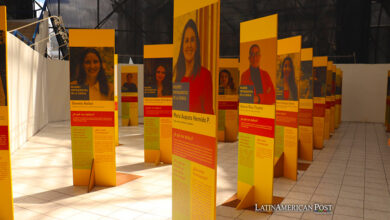Pandemic Has Increased Discrimination Against Women in Malawi
The pandemic crisis still spread in most countries of the world, and vulnerable nations seem to bear the biggest consequences. Women in Malawi face gender discrimination challenges that have worsened due to the COVID-19 crisis.

The Woman Post | Ana Victoria Servigna
Listen to this article
Along with economic and social stress, movement restrictions and isolation measures imposed during COVID-19 have increased the vulnerability of women and girls to sexual and gender-based violence in Eastern and Southern Africa. At the same time, support services are being disrupted.
Women in Malawi take a step forward in this problem by proposing possible solutions through activism to give voice to their female community. Furthermore, UN Women contributes to this cause: violence against women and girls. The series “What Happened After the COVID-19 Outbreak” reflects some of their stories and how our programs support solutions that leave no one behind.
Cultural practices, beliefs, social norms, and gender stereotypes trigger gender discrimination and gender-based violence remains the most difficult issue. Several movements and organizations had taken place in many discussions where alternatives are proposed to improve women's lives in Malawi.
A feminist leader called Thelma Kaliu, a member of the Malawi Young Feminist Network has been active participation in movements to enhance African women's living conditions. She also attended the launch of the Malawi Chapter of the African Women Leaders Network (AWLN), being part of the growth of a movement that was enthusiastically embracing young African women. Similarly, other women have spoken about this subject:
"Although there are differential socioeconomic impacts linked to the pandemic for men and women -and in some cases, men are more affected- the evidence increasingly suggests that covid-19 has exacerbated the existing inequalities between them," said the management. from UN Women for Eastern and Southern Africa, Roberta Clarke.
What Are the Biggest Challenges?
In Malawi, half of the population lives below the poverty line, and opportunities are limited. However, girls face more obstacles than boys to access education and job opportunities, and many of them are unaware of their legal rights. Since the beginning of the pandemic, with the confinement measures, Malawi women witnessed an alarming increase in reports of violence, especially in the private sphere.
Also read: 5 YOUNG WOMEN TRYING TO SAVE THE WORLD
The lack of women in leadership positions fuels these challenges, causing that many of the problems cannot be addressed with the greatest efficiency. Although the number of movements and initiatives to help young women has increased, most of the time this aid only reaches a certain portion of the population. Some of the obstacles arise due to age, location, socioeconomic status, lack of experience, and educational background, leaving out rural areas, where most young women live.
The Impact of the Pandemic
With her constant participation in activism, Thelma Kaliu reveals in a recent interview with UN Women, how the pandemic has impacted women's movements.
"The pandemic has decelerated the efforts of the women's movement, but there has also been growing violence against women, and an increase in teenage pregnancies and child marriage. With the drastic increase of gender-based violence, growing poverty is increasing women's vulnerability and limiting their access to essential services. Women’s movements have felt the pressure," said Thelma Kaliu.
However, Thelma mentioned that awareness and solidarity have been noticed among Malawi women. Through social networks, digital spaces have fostered dialogue, peer support, and discussions on viable solutions to face the crisis. Nevertheless, in this movement, women who do not have access to digital spaces are excluded.
Actions To Take
Patriarchy continues to be the main cause of the mistreatment of women. Encouraging discussion about the different forms of gender discrimination is one of the main tasks. Inclusion is necessary and women's movements look for all stakeholders to prioritize their voices.
The Young Feminist Network of Malawi works to create pathways of collaboration and capacity-building for young women leaders. Also to interpose in a patriarchal society with male-dominated systems of government and start being considered in decision-making.




